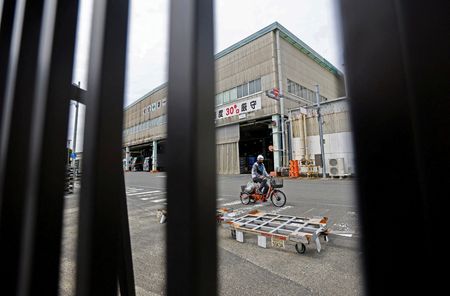By Karen Freifeld
(Reuters) – The U.S. has ordered companies that offer software used to design semiconductors to stop selling to China without first getting an export license, two people familiar with the situation said.
Electronic design automation software makers, which include Cadence, Synopsys and Siemens EDA, were sent notifications by the Commerce Department to cease supplying their technology, one of the people said.
The two sources, who said companies received the notifications on Friday, added the Commerce Department will review each request for a license to ship to China on a case-by-case basis, suggesting the action was not an outright ban.
A spokesperson for the Commerce Department declined to comment on the letters but said it is reviewing exports of strategic significance to China, while noting “in some cases, Commerce has suspended existing export licenses or imposed additional license requirements while the review is pending.”
Shares of Cadence, which declined to comment, closed down 10.7% while shares of Synopsys fell 9.6%.
Synopsys’ CEO said in a call with analysts that it had not received a letter nor had it heard from the Commerce Department’s Bureau of Industry and Security, which enforces export controls.
“We are aware of the reporting and speculations, but Synopsys has not received a notice from BIS. So our guidance that we are reiterating for the full year reflects our current understanding of BIS export restrictions as well as our expectations for year over year decline in China. We have not received a letter.”
After the market closed, Synopsys reaffirmed its revenue forecast for 2025. Its shares and those of Cadence bounced back 3.5% in trading after the close.
Siemens EDA did not immediately respond to a request for comment.
While the scope of the policy change was not immediately clear, any move to strip the software makers of their Chinese customers could deal a blow to their bottom line and to their Chinese chip design customers, which heavily rely on top-of-the-line U.S. software.
“They are the true choke point,” said a former Commerce Department official, who added that rules restricting the export of EDA tools to China have been under consideration since the first Trump administration, but were ruled out as too aggressive.
Synopsys relies on China for about 16% of its annual revenue, while China accounts for about 12% of annual revenue for Cadence.
Synopsys, which partners with chip companies such as Nvidia, Qualcomm and Intel, provides software and hardware used for designing advanced processors.
The Financial Times earlier reported that the Trump administration had ordered the firms to stop selling their services to Chinese groups.
(Reporting by Karen Freifeld. Additional reporting by Alexandra Alper, Costas Pitas and Juby Babu; Writing by Chris Sanders; Editing by Caitlin Webber, Leslie Adler, Vijay Kishore and Daniel Wallis)










